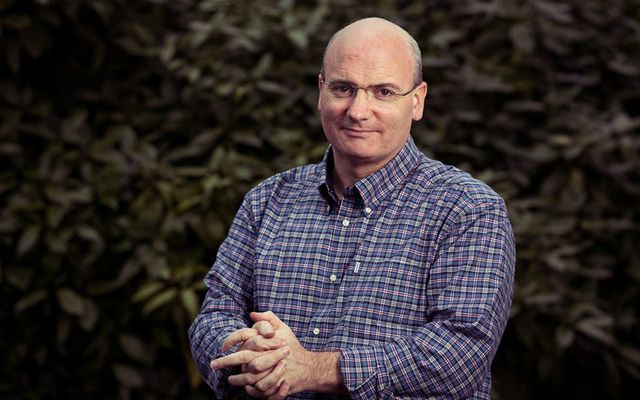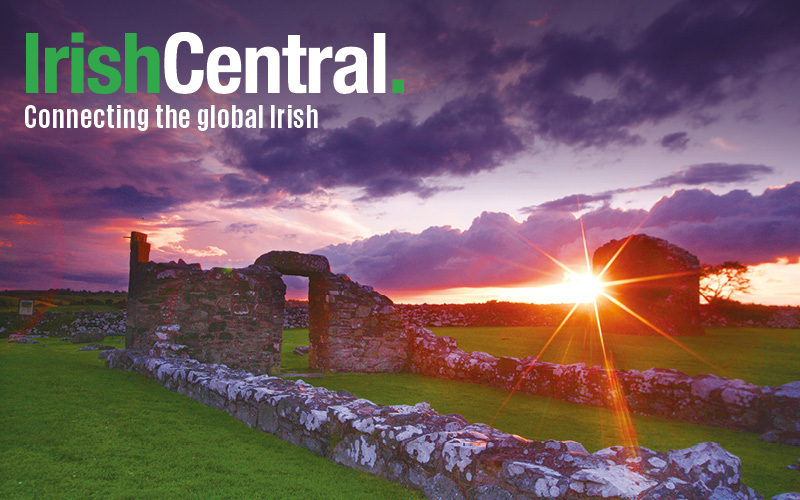Mike Feerick has one of the most interesting, diverse and different life experiences anyone could dream of. From being accepted too early to Harvard MBA, to proving he can take up anything he puts his finger on, he is currently bringing free online education to the masses. In this interview with Niamh Bushnell, Dublin Commissioner for Startups, Mike talks about having a meaningful life, and all that he has learned throughout it. You can read an edited version below or listen to the full transcript on the Commish Conversations Podcast.
Tell us a bit about you.
I was born in New York. I grew up early childhood in Limerick, but I am a Galway man. I was always entrepreneurial. Eventually, got a degree for it. I was accepted to Harvard to do an MBA, but at 23, was deemed too young to attend. Harvard asked me to do something “interesting” for a year and a half. I had heard about the Irish-American philanthropist Chuck Feeney, and thought it would be fascinating to work with him. I wrote him a letter saying, “Chuck, if you let me hang out with you for eighteen months, I promise you I will eventually go back to the west of Ireland and create employment there.” He rang me the next day. It was an amazing experience, going around the world looking at anything from hotels in Texas and Watch companies in the Far East, to vineyards and cycling helmet producers. We have been friends ever since.
What were your biggest learnings from these eighteen months?
Chuck taught me to have a philanthropic view of life. When he gave away his money, he made sure it was as impactful as possible. That was a catalyst for ALISON. I could see that in addressing a social ill, the charity and philanthropy are always going to be limited. The way to address a social need is to create a scalable and sustainable business.
Free learning provider Alison launches build-your-own camera drone course: Digital Photography Review https://t.co/Ya73gbUmBP via @dpreview
— Mike Feerick (@MikeFeerick) March 2, 2017
What did Harvard add to Chuck Feeney?
A database of extraordinary people. It was front row seats for lecturers such as Gore Vidal and Peter Drucker. Having access to these great brains was extraordinary. Harvard also gave me an ability to crunch through an enormous amount of work quickly. We were doing two or three business cases each day. We have a staff of 42 in ALISON now, but for a long time, I did all the C-level work. That’s invaluable in a start-up situation.
Did that include strategy, financials, people management?
People management is the tough one to learn in college. I got a good tip once from Hugh Friel, formerly of the Kerry Group, a guest lecturer at the University of Limerick. He told me: “Always take the opportunity to manage people.” So I kept looking. My first chance came right after Harvard, working as a volunteer with an Irish charity in the UK that was helping elderly Irish who were ending up on the streets. I got to run the charity within a year of joining its board. It went well, and Chuck decided to fund it for three more years. That allowed us to hire people full-time to go around the parks of London and find homeless Irish. It was the first time I ever managed people. I was in my mid-twenties, had eight staff and dealt with HR and people management issues. Had it not been a charity, no one would have given me that responsibility at such a young age.
Read about the latest Irish ancestors added to the Ireland XO Chronicles. Have you added your ancestor yet? https://t.co/xkfGSn9U9T pic.twitter.com/bLbv0pAb6h
— Ireland Reaching Out (@IrelandXO) February 3, 2017
Where did you head after?
A friend started a company called Interactive Investor in the UK. She came around for dinner one night after she had just fired her MD. I listened and said, “Sherry, I can do it.” I helped her raise some money, and the company started growing. But then I got married and had our first child, Rosie. I wanted to come back to the West of Ireland. I was drawn to it and had a promise to fulfil. So I sold out my shares and came back.
In 1999 I started YAC.com, a unified messaging service. You send a fax to a number, and the fax pops in an e-mail. The company became quite successful. We ended up raising $15 million for it and sold it in 2007.
That’s a lot of money for that time? Where did you raise them from?
Switzerland, the UK, the US. I think it was the largest amount of money that was raised by a start-up outside of Dublin back then. The news made it to the Financial Times.
When was your first brush with e-learning?
Around the time I started YAC, I met Larry Levitsky, then the head of e-learning for Microsoft. He told me they wanted to expand their e-learning. I said to him, “Let me do it in Ireland.” He turned to me and said, “Well, you’ve no experience.” Nevertheless, I told him to leave it with me. I hired three people that had experience as course instructors and sent them to Microsoft in Seattle to work for free and to find out how they developed stuff. The idea was to bring them back and create a facility to build e-learning. I named that company Advance Learning. Eventually, that e-learning work went off to India. But in the meantime, we had managed to create an online platform and started selling the courses in computer literacy, between 2001 and 2004.
Disrupting a $4 trillion global business https://t.co/lRUhAoDCay @AlisonCourses @MikeFeerick
— John Breslin (@johnbreslin) February 2, 2017
How did that transition to ALISON?
Around Christmas time in 2005, I thought whether there was a bigger idea in all this. Costs of servers and broadband were going down, while the opportunity to monetize websites was growing through AdWords. The ability to create quality learning was getting easier and cheaper. And then the spark came: we could provide education for free online and make money from showing ads if the volume was high enough. It was an innovative business model with a potentially phenomenal social impact. When we came back to the office after the holidays, we changed the business model and made everything free. We started rebuilding the platform and on April 21st, 2007 we launched ALISON. Our first pupil was from Germany. We were so excited. We got even more excited the day we got to ten thousand learners. We dreamed of the day we’d get to fifty thousand, then a hundred thousand, then a million. It took us five years to reach the first million and just a further year to the second million. Currently, we have ten million learners and almost a thousand free online courses. The only Irish owned website busier than us is ryanair.com. We have signed up another million learners already this year.
How does ALISON work?
We are a social enterprise, and we run things like any other well-run fast-growing online global business. Yet the number one goal is to change how people are educated through free access to learning and publishing. We have ads on the website, which is one of the ways we make money. The volume comes because our courses teach the basics: project management, accounting, HR, English in a tourism setting. We’re focusing on the billions of people that need to upskill.
The other source of revenue are the certificates. As a social enterprise, we don’t insist that people buy a certificate from us. If people want one, though, we charge them. Over 30% of people buy them to support the ALISON free learning mission. One of the first cheques we got was eight years ago. It came with a beautiful hand-written letter from an eighty-three-year-old man from Scotland who wanted to thank us for helping him learn IT. The cheque was for hundred pounds sterling. He said there was no way via the website he could thank us because we were free. It was a very sweet gesture.
For all the aspiring journalists our there, check out Alison's most popular courses on journalism - https://t.co/jPZnnZW09W.
— Alison (@AlisonCourses) March 8, 2017
Throughout all this, what are you most proud of?
Article 26 of the Universal Declaration of Human Rights states “Education shall be free.” It was conceived 60 years ago by the General Assembly of the United Nations. Their vision wasn’t technically possible for a long time. They didn’t know how to achieve it, but I found a way. So I went on and did it because I think everyone has a moral obligation to help others when you know you can.
And regarding projects?
We did a project last year that was launched by the President of India – an e-learning platform, powered by ALISON. It was a huge project with tight deadlines. We showed that a forty people company could conquer the scale of India, because I went there, met with them and understood the requirements. I was proving that we could deliver on time and on budget and be a company of our word. That’s one thing we Irish are really good at – we get on with people, and we use our creativity to deliver.
Another one was an initiative to bring education as a substitute for jail time. I spent a long time looking for an American Court Judge who would be interested in sentencing convicts to ALISON courses as I think that education is a far better alternative for rehabilitation and prevention of recidivism. I found Judge William Watson in Upstate NY. Last March, a repeat offender faced him at the Drug Court. The Judge was frustrated he was seeing the person again but told him, “If you go and do two courses in ALISON, I will not put you in jail.” It worked. Since then, eleven more people have been sentenced in that way. The reason why more Judges don’t consider sentencing people to education is that there is no one to pay for it. Free online courses change that.
What are the skillsets that people need today that they wouldn’t have needed back in 2007?
The standard industries out there are going to be automated. The opportunity for people is to become more entrepreneurial, creative, and dependent on themselves. For that, they need to be continuous learners. At the same time, we are living in a world where many people have the ability to teach, but are not teaching. We have to take that latent capacity and get them to do it. ALISON gives them the free platform to do it, which drives down the cost of knowledge and skills. People around the world need to upskill, and countries who are complacent will be in trouble, starting with America. I say this as an American citizen. There is a vast number of people there who are far too poorly educated and skilled in the USA.
Educate a girl. Change the world. #BeBoldForChange #InternationalWomensDay pic.twitter.com/e4OON6X3XX
— Alison (@AlisonCourses) March 8, 2017
And who can’t access traditional education because it is very expensive?
Yes, but there is also a lack of recognition for skills. For instance, in Germany, there is great respect for people who are doing every type of work: from the plumber to the carpenter, as these people have really good skills. Whereas in America, you have an overdone constant pursuit of capital: make money and become a billionaire. I think that is silly. Why do you want to have more money than you need? You should be giving it away. You get a lot more satisfaction from that.
What is next for ALISON?
We need to double our staff. Frontend and backend developers, system administrators, designers, publishers, product and marketing managers. Next up we want to reach a hundred million users. I will be disappointed if we do not get there by 2020. Eventually, I want us to reach 5 billion.
What are your thoughts on the young Irish going to college?
I see a lot of ambition in young Irish people. And they’re not waiting for the colleges to give them a stamp of approval to tell them they know X or Y. They’re already there. Personally, I don’t think kids should be wasting their time in college when they could be learning online, and travelling the world. They shouldn’t be focusing on earning money early on. Their whole twenties should be understanding and getting to know people, gaining different experiences, becoming better human beings. Ireland is a great place to be in, but everyone should be kicked out for some time. If you go away, you’ll come back appreciating it all the more.
A lot of people in the world tell us that things are a mess and that we should be fearful. How do we respond to that? I think we should be responding with a tsunami of free, high-quality learning. People’s self-esteem and confidence grow every time they do a course and get certified. So free learning online can raise the confidence of ordinary people at every level all around the world. I can tell you that if we can raise the self-esteem, and the confidence of people, we will change the world as we know it.
---
This interview was originally published in Dublin Globe. You can read more from there here.




Comments